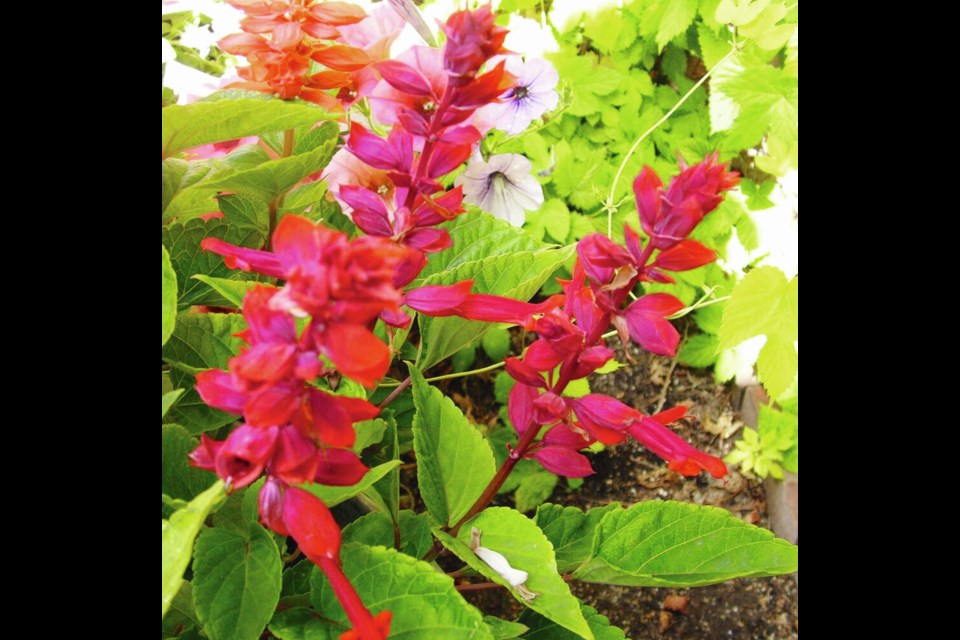I savour the one or two periods of snowy weather that we encounter in a West Coast winter. Like a soft blanket of silence, snow in our climate is a comforting reminder to slow down a little and appreciate the beauty of it.
Snow accentuates the magic of a garden. Snow is also an effective insulating material. Unfortunately, last week’s snowfall came after, not before, a severe cold spell with record low temperatures. My overnight readings over a week ranged from -6 C to -10 C.
As the air began to take on a predicted iciness prior to the third night of severe cold, I used all the straw, leaves, old curtains and row covers, and tarps I had to arrange over winter vegetables — leeks, kale, carrots, cabbage.
Even well-covered, leafy greens like lettuces, endive, escarole and radicchio had no chance of surviving the predicted low temperatures. I harvested and refrigerated them — rinsed clean and wrapped loosely in tea towels placed in plastic bags.
Those record-breaking low temperatures, like the scorching summer heat of recent years, are forceful reminders that we have entered a period of weather extremes that call for adaptations in our gardening practices.
Observations. As gardeners monitor the progress and relative successes of each year’s plantings, puzzling situations sometimes emerge .
I’m still wondering why, with the late spring and early summer heat, many of the bulb onion transplants faltered while the leeks, growing right beside the onions, continued growing with great vigour.
The onion harvest in late summer was smaller than usual, while the three short rows of leeks provided an abundance of good eating.
During the Christmas holidays, I treated my son to one of my favourite vegetable combinations — leeks steamed with peas. He was surprised at how well the two vegetables complemented and accented the flavours of each other.
Peas and sliced leeks make a fine combination also in a quiche, one of the best possible all-purpose foods, good for breakfast, lunch, dinner and snacks.
As in 2022, I grew three leek varieties last year. In both years, by far the strongest grower and producer of the thickest, most tender leeks was an heirloom (1834) called Giant Musselburgh. Seed sources are listed in the Canadian Seed Catalogue Index of the Seeds of Diversity website: seeds.ca.
Victoria’s Brother Nature lists this leek under Onion-Leeks. Go to seed details to find the variety listed as “Heirloom Giant Musselburgh.”
Among last summer’s flowers, I was delighted in particular with one of the three colours in a “Hummingbird Salvia” mix called Firelight, from Renee’s Garden.
I started the seeds indoors in February and moved the sturdy transplants into an old metal washtub as the weather began warming in the spring. The tub is one of several large containers that I plant with flowers at the entrance to the back garden.
The Firelight plants produced coral, creamy white and rose-red blooms. The rose-red flowers were especially gorgeous with rosy-violet tones overlaying the red colouring. The plants grew to around 38 cm and bloomed all summer, attracting bees and hummingbirds.
I’m pleased to be re-visiting this seed source, one of my favourites back when there was a printed catalogue. The current online catalogue is blessedly attractive and easy to use, with plenty of varieties for small space and container gardens.
GARDEN EVENTS
Seedy in Qualicum. The 20th Annual Qualicum Beach Seedy Saturday will celebrate seeds and gardens on Feb. 3, 10 a.m. to 3:30 p.m. in the QB Civic Centre, 747 Jones St. Admission is by donation. The event will feature a “seed swap” of seeds saved from garden plants, sales of seeds, plants and gardening supplies, gardening and environmental group information booths, Master Gardeners to answer questions, talks on Perennial Vegetables and Gardening for Native Bees, and a Seedy Café. Details on speakers, vendors and the café menu can be found at qbseedysaturday.ca.
VHS meeting. The Victoria Horticultural Society is hosting a Zoom meeting on Tuesday, Feb. 6, from 7 to 8:30 p.m. Linda Gilkeson will speak about understanding and identifying the butterflies of southern Vancouver Island. Linda is an entomologist who has worked for the provincial government to promote programs to reduce pesticide use. She is also known for her books and workshops on organic gardening, beneficial insects and eco-friendly pest management. Non-member registration cost is $5. To register, visit vichortsociety.org.



